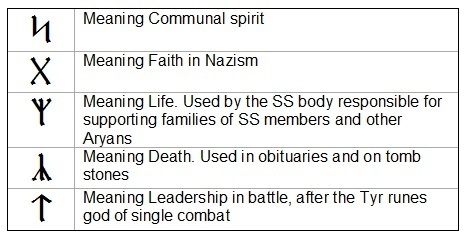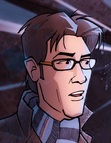Tim Flanagan's Blog, page 22
August 12, 2013
Author Interview – Carole Cummings
Within the Indie Author Hub, you can learn about other authors, their thoughts and opinions, what makes them tick and how their writing process works for them.
This week I interviewed Carole Cummings. Have a look at her profile and books here.
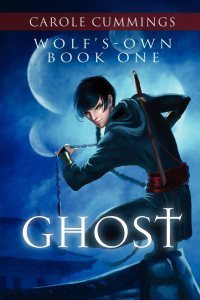 What inspired you to become an author? Everything inspires me to write. The ideas come and the characters metastasize like bossy tumors, and I have no choice but to write the story they need to tell. I can’t point to any one thing and say ‘It’s this, this is where it all comes from,’ because it comes from everywhere and at all times. There is a storyteller camped out in my backbrain, and it insists on being constantly vocal. It’s just how my head works. If I couldn’t write, I’d be rocking in a corner of a padded room somewhere. I’d like to stay somewhat sane, so I’ll take the writing.
What inspired you to become an author? Everything inspires me to write. The ideas come and the characters metastasize like bossy tumors, and I have no choice but to write the story they need to tell. I can’t point to any one thing and say ‘It’s this, this is where it all comes from,’ because it comes from everywhere and at all times. There is a storyteller camped out in my backbrain, and it insists on being constantly vocal. It’s just how my head works. If I couldn’t write, I’d be rocking in a corner of a padded room somewhere. I’d like to stay somewhat sane, so I’ll take the writing.
Do you write full time? Yes and no. I don’t engage in the physical act of writing on an 8-hr-a-day schedule if that’s what you mean, or any particular schedule at all. I write what I need to get written and I do it at any opportunity. But my head is nearly always engaged, in one form or another, in creating a story. Whether I’m building the world inside my head before setting the story down on paper, or figuring out a better way to say what I’ve already written, I’m always writing. When I’m not writing I work as a Soccer Coach.
How do you fit writing into your routine? It’s more like how do I fit everything else in with the writing. Just because I’m not physically typing out a story doesn’t mean I’m not writing. There is a portion of my brain that is constantly growing stories, whether I’m paying attention to their evolution or not. When I can’t write on paper, I’m writing in my head.
Do you have daily word targets? No. I have particular scenes I want to complete, and other objectives that drive a day’s work—character points I want to get straight, a subplot I want to deconstruct/clarify, etc. But I don’t pay attention to word count until after a project is complete and it’s time to decide if I want to submit it somewhere or not. Daily word count, to me, just leaves you open to a false sense of failure or accomplishment. Who cares if you got 5K words down if they’re all crap? Who cares if it’s ‘only’ 500, if every one of them says something profound?
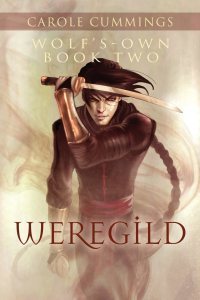 Before writing, do you plan your books to the last detail? No. My writing is character-driven, which means the characters do not exist to justify the plot; the plot exists to develop the characters. The characters, therefore, are their own people with their own opinions on what they will be doing and saying and reacting, and those opinions don’t always agree with mine. By the time I set down the opening sentence, the characters have already spent a great deal of time introducing me to the world, so I know them and the world pretty well by then, and I know the basics of the plot and the conflict. After that, everything depends upon where the characters take it. My characters decide what they will be like themselves. My stories always start with the characters, and from the first brain cell they commandeer, they are their own people. They show me who they are and how they’ll react to their circumstances and surroundings; my job is to craft the words around them.
Before writing, do you plan your books to the last detail? No. My writing is character-driven, which means the characters do not exist to justify the plot; the plot exists to develop the characters. The characters, therefore, are their own people with their own opinions on what they will be doing and saying and reacting, and those opinions don’t always agree with mine. By the time I set down the opening sentence, the characters have already spent a great deal of time introducing me to the world, so I know them and the world pretty well by then, and I know the basics of the plot and the conflict. After that, everything depends upon where the characters take it. My characters decide what they will be like themselves. My stories always start with the characters, and from the first brain cell they commandeer, they are their own people. They show me who they are and how they’ll react to their circumstances and surroundings; my job is to craft the words around them.
How do you get over the fear of a blank page? It’s not fear. I suppose you’d call it drive, or maybe necessity. I don’t fear a blank page. I sometimes get annoyed by one, because writing is hard work, and when I’m starting something new, I know I’m in for the long haul. For me, the first blank page represents around 300 more I know are just waiting for that first keystroke so they can come rushing in, and every one of them is going to wring something out of me. But the need to get the story down and get the characters out of my head always wins.
How do you target your audience effectively? I’m actually still trying to figure that one out, when it comes to actively shouting ‘I’m here!’ into the Void. I honestly believe that the most effective promotion is word-of-mouth and readers recommending books to their friends. If you write a quality story and craft your words effectively, people will not only put you on their ‘authors to buy’ lists, they’ll also tell their friends about you. Then some of those friends will buy your book and recommend you to their friends, and so on….
How much time do you spend promoting yourself in social media? I do the usual, like most others. I have a website that I try to keep as up-to-date as possible; I have my blog and other social media; I sometimes do giveaways and contests and the like; I participate in things like this interview when I have an opportunity (thanks, Tim!). Mostly, though, I do what I’m comfortable doing and only when it won’t interfere with writing. I always figure that if I spend all my time on promoting, not only will people get sick of me, but I won’t have time to write anything to promote, so I try to keep it in perspective.
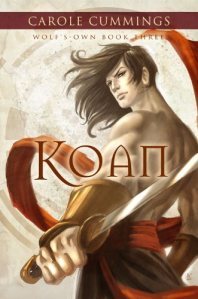 What’s been your most effective way of promoting yourself? Depends on what you mean by ‘promoting yourself’. I use social media for my writing persona in the same way I use my personal FB page—I interact with my subscribers when something they’ve posted catches my interest, and I post when I have something I want to say or to let them know when I have something new going on. For directly book-related stuff, I post when I have new cover art, a new release, or a particularly stellar review. I don’t SPAM with a blurb and a link once a week, because it drives me crazy when other people do it and nothing will make me go hunting for the ‘unsubscribe’ option faster. So I just try to be myself.
What’s been your most effective way of promoting yourself? Depends on what you mean by ‘promoting yourself’. I use social media for my writing persona in the same way I use my personal FB page—I interact with my subscribers when something they’ve posted catches my interest, and I post when I have something I want to say or to let them know when I have something new going on. For directly book-related stuff, I post when I have new cover art, a new release, or a particularly stellar review. I don’t SPAM with a blurb and a link once a week, because it drives me crazy when other people do it and nothing will make me go hunting for the ‘unsubscribe’ option faster. So I just try to be myself.
What made you decide to publish independently? I’m a voracious reader, and a lot of what I’ve seen coming out of mainstream presses over the past decade or so has been… disappointing. The bigger publishing houses seem to be more concerned about whether you can cram formula into 60K words or less than they are about whether or not a book tells a worthwhile story. Storytelling and characterization are what’s important to me and I’ve seen more of that coming from small presses and self-published books lately than I have from mainstream publishers. I want to be in the company of those who think Story and characterization are as important as I do, and not those only worried about whether or not they can Sell!Sell!Sell! 10K copies of a book before anyone figures out it’s crap.
What do you think the future of publishing will be? I think, with the advent of ebooks and more accessibility, the trends that have already started will only grow. Readers will be better able to choose what they want to read, rather than having to make do with what the Big Six tell them they can have. I’m already enjoying reading the benefits of the changes and finding some brilliant authors whose work, ten years ago, wouldn’t have made it past their own desk drawers. I don’t think anyone thinks mainstream publishing is the One True Gatekeeper of Great Literature anymore. And considering how slow they’ve been to recognize the recent trends and accept/adapt to them, I’m not sure I have much optimism for their future. I don’t think that’s a bad thing. I think they’ve been pandering to the lowest common denominator for a long time now, and anything that gives me access to higher quality, more intelligent books is okay by me.
Is it necessary for authors to have agents these days? I’m not sure how qualified I am to answer that. I’ve never shopped for an agent and don’t intend to. Personally, it seems to me that agents are being phased out of the equation, and since I view them as partially responsible for the drop in quality that mainstream publishing has been offering lately, I’m not shedding any tears over it. Tolkien would not be able to get an agent to even open his manuscript today, and he certainly wouldn’t be able to get one to shop it around to publishers unless he agreed to cut it down to 120K words. I shudder to think how many Tolkiens have been rejected by today’s agents and publishing houses. If someone writes easy-to-read formula in 60K words or less, sure, an agent might be helpful. But if, like most independent authors I’ve read, they’ve got a good story with involving characters and a plot that insists a reader think, I’m not sure spending time on submitting to agents is a good use of resources. An agent wants to know if a book will sell 50K copies in its first month, not if it’s actually good.
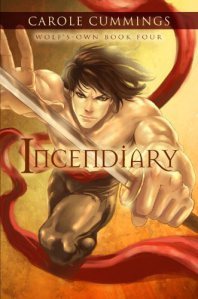 How do you keep yourself motivated? I’ve got entire casts of characters in my head at all times, and every one of them is constantly demanding that I tell their story right now. It’s not a question of motivation; it’s a question of OMG MAKE IT STOP!
How do you keep yourself motivated? I’ve got entire casts of characters in my head at all times, and every one of them is constantly demanding that I tell their story right now. It’s not a question of motivation; it’s a question of OMG MAKE IT STOP!
What’s your top tip for aspiring authors? Don’t listen to other people’s tips—WRITE.
Thank you for being part of this interview.


August 9, 2013
Friday Film – On Location with The Hobbit
Whenever I’m writing, I always try to find interesting locations that provide a great backdrop to the action. In some ways, the location you choose for a scene is just as important as the characters you place in it. It can set the mood and atmosphere of the story, before the characters have even said a word.
It seems that Peter Jackson, director of The Lord of the Rings and The Hobbit, agrees. Here is a short film taking you to some of the locations they used when filming The Hobbit in New Zealand. Many are real places that don’t rely on CGI or big set designs to make them look authentic, because they already are!


August 5, 2013
Author Interview – Ben Edwards
Within the Indie Author Hub, you can learn about other authors, their thoughts and opinions, what makes them tick and how their writing process works for them.
This week I interviewed Ben Edwards. Have a look at his profile and books here.
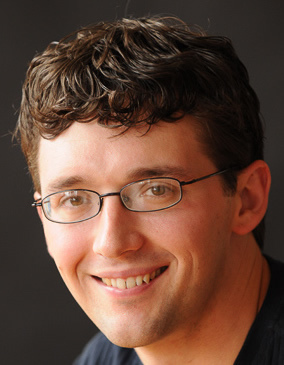 What inspired you to become an author? A friend of mine, Jeff Rose of GoodFinancialCents.com was running a campaign to help consumers pay off debt called the Debt Movement and I worked with him to co-author a book to help support the movement.
What inspired you to become an author? A friend of mine, Jeff Rose of GoodFinancialCents.com was running a campaign to help consumers pay off debt called the Debt Movement and I worked with him to co-author a book to help support the movement.
If you couldn’t be an author, what would you be? I’m actually a software developer, so I’m a part-time author. I’m also a blogger – so I enjoy writing books, blog posts, and software. I write software at my day job and write my blog and book in the evenings – not enough time in the day 
How do you fit writing into your routine? I write in the evenings. I have a family of three little kids, so after they’re all in bed I write in my basement office. I don’t have daily word targets. The Debt Movement had specific begin date and end dates so I had a very specific deadline to hit. My daily word target was as many words I could write before falling asleep in the evening. I do belong to a writing group of sorts, Pat Flynn’s Facebook group of current/aspiring self published authors. The topics of conversation aren’t as much about writing as they are about all the other aspects of self-publishing.
Before writing, do you plan your books to the last detail? I created an outline of what the book would look like, but it wasn’t down to the level of detail. The book evolved as I wrote it. It started off as a concept and then I expanded on the concept, got some feedback. I realized it was missing some things so I went in and I added a lot more structure to it. So in terms of planning, it was pretty high level. In terms of getting over of the fear of a blank page, one of the things that I have done is dictate parts of the book during my commute. I didn’t use those word for word but they served as kind of the starting point for some of the content of the book.
Do you have a special writing place? No, I don’t. I write a little bit in the laptop in the main family area, mostly down in my basement office. When I’m at work, I have notepad open and sometimes an idea will come to me and I’ll write it down – that’s not hardcore writing, that’s just kind of capturing ideas.
How do you target your audience effectively? I run MoneySmartLife.com, a personal finance blog and I’ve written a little about the book there. My most successful online promotion has been writing guest articles on other blog websites. I also have a Twitter handle and a Facebook page, but really most of the promotion I’ve done with those has been to promote the articles that I’ve written on other sites. So as opposed to promoting my book directly from social media, I’ve promoted the articles I’ve written in other places. I also have an email newsletter. They’ve subscribed to emails about personal finance topics and I’ve emailed them about the book. All of the sites I wrote guest articles for were personal finance sites. So I targeted existing audiences. I don’t do any offline promotions.
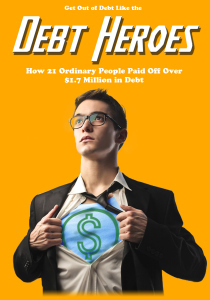 How were you published? I published through Amazon. I published independently mostly because I had this project deadline that I needed to hit. Since I needed to get the book done quickly so there was no time to put together a proposal and then shop around for different publishers. Basically, it was deadline driven.
How were you published? I published through Amazon. I published independently mostly because I had this project deadline that I needed to hit. Since I needed to get the book done quickly so there was no time to put together a proposal and then shop around for different publishers. Basically, it was deadline driven.
Do you think that self published authors are looked down by their traditionally published counterparts? Typically traditionally published books bring a certain level of quality. Publishers know what readers expect in a book and they help authors provide that. I think that traditionally published authors have to work hard to create a quality book. So when they see a self published book, they don’t know for sure whether that author went through all the steps to make a quality book. So I could see why a traditionally published author might be more confident in traditionally published books because they have gone through that vetting and editing process compared to a self published book. That’s not to say self-published books can’t be high quality, just that I understand why that perception exists.
What do you think the future of publishing will be? I hope the future of publishing is that books are more interactive. I’m big into the how-to kind kind of books and I would like to see books that not just inform people, but help people take action to move forward. Seems to me there’s a lot of opportunity for a lot more interaction and media in digital books and I think that would be a better experience for both the readers and authors.
Do you think there’s a place for traditional publishers? Traditional publishers have a lot of contacts in big media. Some of the personal finance authors I know that were bloggers and published a book got a lot of radio and TV interviews through the publisher. In terms of whether having an agent would be helpful for authors, I don’t know, I didn’t look into it.
How do you deal with rejection or a less favorable review? I took the first negative review pretty personally. What I’m trying to do is to read negative reviews and look for patterns. I’m attempting to listen to their complaints and am going back to try to release an edition of the book that addresses some of their criticisms.
What’s your top tip for aspiring authors? One tip is to build an online platform to launch your book from before you launch your book. I think the hardest part of the publishing, at least with my one experience, has been just promoting the book – getting the word out about it. I was fortunate that I already had some kind of a platform to promote Debt Heroes. If I hadn’t I think it would have been pretty frustrating. I was pretty happy with the initial results of my initial promotion but if I didn’t have a platform, I think I would have been pretty discouraged with self publishing – getting it out on Amazon and not getting any purchases or reviews. As you build your audience it can help you shape the direction of your book.
Thank you for being part of this interview.


August 1, 2013
Modern Day Use of Runes
In some of my books I have used an anglo-saxon version of runic symbols, which have been used in history for many things including divination and magic. I thought it would be interesting to look at two modern day use of runes.
Nazi Symbolism
 During the second world war, Heinrich Himmler shared a fascination of the runic alphabet and considered it to have symbolic meaning. The Schutzstaffel (also known as the SS) is recognised by two Sig runes side by side. Sig means Sun, however, it was reinterpreted and became known as a Victory sign and could be seen on the uniforms of German officers. Typewriters, even had an extra key added with the double-sig symbol.
During the second world war, Heinrich Himmler shared a fascination of the runic alphabet and considered it to have symbolic meaning. The Schutzstaffel (also known as the SS) is recognised by two Sig runes side by side. Sig means Sun, however, it was reinterpreted and became known as a Victory sign and could be seen on the uniforms of German officers. Typewriters, even had an extra key added with the double-sig symbol.
Other symbols used by the German army included:
J R R Tolkien
Anglo-saxon runes have often been used in literacy, most famously by J R R Tolkien in his novel, The Hobbit, as the alphabet of the Dwarves. The runes were thin and angular, making them easy for cutting and engraving into wood, stone and metal. They can be seen as the language used on Thror’s Map in The Hobbit, as well as the West Gate of the Moria. Although Tolkien adapted the original Anglo-Saxon alphabet, primarily it remained the same. 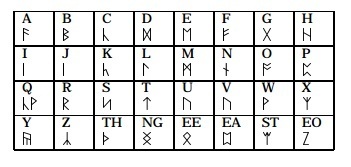 Identifiable runes were also used in the initial drafts of The Lord of the Rings, but later replaced by an adapted rune-like alphabet invented by Tolkien himself, called Cirth.
Identifiable runes were also used in the initial drafts of The Lord of the Rings, but later replaced by an adapted rune-like alphabet invented by Tolkien himself, called Cirth.
 Using Runic Script Translating Runic Script The Runic Square – a puzzle
Using Runic Script Translating Runic Script The Runic Square – a puzzle


July 29, 2013
Author Interview – Barbara Schnell
Within the Indie Author Hub, you can learn about other authors, their thoughts and opinions, what makes them tick and how their writing process works for them.
This week I interviewed Barbara Schnell. Have a look at her profile and books here.
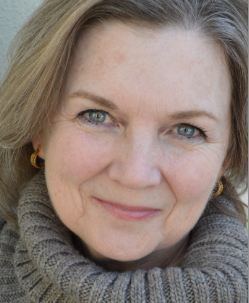 What inspired you to become an author? I always enjoyed writing little stories for myself. And everybody raved about my Christmas letter–as a matter of fact, my husband uses them as a way to keep in touch with business associates (he says they’re good marketing). I was still pursuing an acting career (although I’d lost interest in the acting business by then–actually the business lost interest in me) when I mentioned to a cousin that I was thinking of writing something. She seemed surprised. She said, “But I always thought you were a writer!” All it took was one positive comment and I started my novel. I’m always amazed at what can grow out of a kind word. If I couldn’t be a writer I would probably be an architect or building designer. I learned a lot putting my old house back together. It’s satisfying work that clears you mind.
What inspired you to become an author? I always enjoyed writing little stories for myself. And everybody raved about my Christmas letter–as a matter of fact, my husband uses them as a way to keep in touch with business associates (he says they’re good marketing). I was still pursuing an acting career (although I’d lost interest in the acting business by then–actually the business lost interest in me) when I mentioned to a cousin that I was thinking of writing something. She seemed surprised. She said, “But I always thought you were a writer!” All it took was one positive comment and I started my novel. I’m always amazed at what can grow out of a kind word. If I couldn’t be a writer I would probably be an architect or building designer. I learned a lot putting my old house back together. It’s satisfying work that clears you mind.
Do you write full time? Not yet but I intend to. I was project manager on the house construction–which means I was the drywaller, woodworker, painter, wallpaperer, floor finisher, etc. I also edit reports for my husband who is a technical writer.
How do you structure your day? I’ve decided to set aside an hour a day to write. I’ve managed to get the chapter summaries, character breakdowns, and all the background work done. Now it’s time to write. I think writing is like exercise; start small and do what you can. Work up to longer periods of writing. The trick is not to kill yourself starting out. That’s just discouraging. Writing is hard enough without putting unrealistic expectations on yourself.
Do you have daily word targets? Starting out I only try for two pages a day. As the story takes shape I get excited and write more.
Before writing, do you plan your books to the last detail? I know where I want to start and where I want to end up. In terms of structure, I start out with three acts (that’s the acting background); exposition (characters and plot introduction), plot furtherance (conflict), and resolution. Then, as mentioned above, I figure out the chapter breakdowns and character backstory. I usually throw stuff out the window as the story takes on its own life but at least I have a starting point. All my characters are amalgams of people I’ve met. Their behavior influences what happens in the story and the story dictates what happens to them. It’s very symbiotic.
How do you get over the fear of a blank page? I don’t think you ever get over the fear. But now I understand that a first draft is basically ‘vomiting’ out a story; it’s not supposed to be a finished product, it’s a place to start. That takes some of the pressure off.
How do you target your audience effectively? I haven’t figured out how to target my audience effectively. I’m just learning. I’m always open to suggestions and advice. I write romantic comedies so I always considered my work chick-lit–which I consider a good thing. I read that 70% of book buyers are women so that’s a good-sized target. But I’m surprised that men like my book too. Maybe it gives them insights to a feminine mind while giving them a good laugh.
How much time do you spend promoting yourself in social media? I don’t spend enough time promoting because it gets it the way of writing. I think I’ll get a few more books written before I spend the time (and money) to advertise. Maybe I’ll look into hiring a publicist.
How were you published? I originally published my book through iUniverse but I haven’t been pleased with Authors Solutions (they bought iUniverse and took the name). When I put the book in ebook format they took the Editor’s Choice designation from me (why, I don’t know). When I objected they said they’d give me back the designation but I haven’t seen anything yet. KDP does a much better job of marketing books. They actually seem to want to sell books. Authors Solutions just seems to want to separate me from my money. Now I know why they have such a bad reputation. I have a collection that I’m going to put on KDP and see how that goes. Wish me luck.
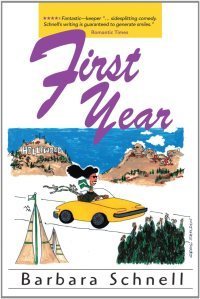 What made you decide to publish independently? I felt that I had to. I had what was considered the top agent on the West Coast. She accepted my book because she said she’d never had her top reader talk about a book the way he talked about First Year(I think at the time I called it Our First Year). She said he was ‘over the moon!’ She sent my book to the top six New York publishers with a ‘gentlewoman’s agreement’ so they could read it over the Thanksgiving weekend. She also told me that Creative Artists wanted to represent the film rights. There was much excitement although I remember telling my husband, “After all this, if the book doesn’t sell, I’ll just die”. Well, nobody in New York had ever heard of me, I had no sales record, and the first few pages were flawed; they all passed. Then the agent fired all my white knights within her agency and sent my book back. She said she’d never really been behind the project. That’s when I learned about being ‘shopped’–that’s when your book has been around and rejected. No agent wants a loser. So I fixed the bad pages and published it on iUniverse. I’ve managed to get some really good reviews and am trying to sell the thing myself. It’s been tough but I still have the rights. And I didn’t “just die”. I learned a lot.
What made you decide to publish independently? I felt that I had to. I had what was considered the top agent on the West Coast. She accepted my book because she said she’d never had her top reader talk about a book the way he talked about First Year(I think at the time I called it Our First Year). She said he was ‘over the moon!’ She sent my book to the top six New York publishers with a ‘gentlewoman’s agreement’ so they could read it over the Thanksgiving weekend. She also told me that Creative Artists wanted to represent the film rights. There was much excitement although I remember telling my husband, “After all this, if the book doesn’t sell, I’ll just die”. Well, nobody in New York had ever heard of me, I had no sales record, and the first few pages were flawed; they all passed. Then the agent fired all my white knights within her agency and sent my book back. She said she’d never really been behind the project. That’s when I learned about being ‘shopped’–that’s when your book has been around and rejected. No agent wants a loser. So I fixed the bad pages and published it on iUniverse. I’ve managed to get some really good reviews and am trying to sell the thing myself. It’s been tough but I still have the rights. And I didn’t “just die”. I learned a lot.
What do you think the future of publishing will be? I don’t think anyone knows that. Publishing is in such flux. I find it interesting that Penguin bought iUniverse. Apparently, self-publishing is where the money is. I read in the Wall Street Journal that Penguin management wanted to put successful indie writers (like the author of the Shades of Grey books) under contract. So many best-sellers start out as indies. Is there a place for the traditional publishers anymore? Yes. People still trust traditional publishers. And they seem to have a lock on the review process. I think traditional publishers are working to discover new writers (that’s their business after all) but it costs so much to really push a book, they wait for a clear sign (sales, for instance) that they’re not wasting their money. On the other hand, ebooks seem to be leading in sales. Traditional publishers don’t have to stock inventories so the 12 1/2 % royalty seems stingy. They have to learn to share the profits with the writer. Until they do, I know some writers who prefer to go it alone with the ebook format–they make more money. There aren’t very many bookstores to worry about anymore.
Do you think that Indie Authors are still looked down on by their traditionally published counterparts? I think a lot of indie authors like to think so. It seems to fuel some indie authors’ sense of righteous indignation… or maybe it helps obscure their insecurity; I’m not sure. But no, I think most traditionally published authors don’t care one way or another what indie authors are doing. Ditto editors and publishers.
Is it necessary for authors to have agents these days? It’s the only way to get to a traditional publisher. And if you’re a writer starting out–and without a following–traditional publishers can get you noticed. One interesting note: I went to a writers conference that had an agent as the luncheon speaker. He said he knew he was in a dying industry and but claimed that agents had it coming. Agents had been insulting and abusing writers for years and they were just getting their due. Of course, another agent in the audience got all red in the face and raised his hand to argue. Unfortunately for him, he was ignored. I don’t know if agents are a dying breed. Maybe the herd is just being thinned. I know I’m glad I don’t have to pay someone 10-15% of my earnings for what seems to be an introduction.
What’s your top tip for aspiring authors? Don’t jump off a bridge; keep writing.
Thank you for being part of this interview.


July 26, 2013
Friday Film – Jedi Kittens
 You can never have enough cat videos!
You can never have enough cat videos!
It’s Friday, so time for some entertainment ready for the weekend. Here are two videos featuring kittens in Star Wars and The Empire Strikes Back. Enjoy.
If you would like to see more crazy videos, subscribe to my blog. If you come across others you think the viewers of my blog would like, just let me know.


July 24, 2013
Where Would You Go If You Were Doctor Who?
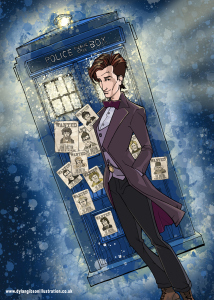
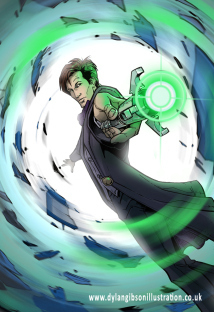 I’m currently working with a wonderful illustrator called Dylan Gibson who did these great illustrations of Doctor Who. It got me thinking – if you could get in a time machine and go anywhere in time, where would it be?
I’m currently working with a wonderful illustrator called Dylan Gibson who did these great illustrations of Doctor Who. It got me thinking – if you could get in a time machine and go anywhere in time, where would it be?
You could use it to watch a historical moment in time and be part of it. Or, maybe you would want to go back and tell a younger you the lottery results. It might be nice to voyage on the HMS Beagle as it travels around the Galapagos Islands with Mr Darwin.
I’ve had a quick think about this question and I think I would go back and talk to myself, Tim Flanagan, as a child and tell him that it doesn’t matter that he is taller than others of his age, eventually it is an advantage (plus women like a tall man!). I would convince him to accept himself for who he is and not try and fit in with others, but let them fit in with him. Be true to himself and trust in his gut feelings. Advise him to only move forward and never look back with regret. I would tell him to look at the world through inquisative eyes and learn at least one thing from everyone and everything he comes across. The world is an amazing place that never fails to surprise. He shouldn’t expect too much from other people but understand that everyone is different and will not always rise to the standards he expects. Above all, I would tell him to follow his dream and experience a life that feeds his soul.
Age and experience give you the gift of hindsight. Above all, I don’t think Tim Flanagan turned out too bad!
Or, maybe I would go back and write the code for Facebook before Mr Zuckerberg and be living on an island somewhere bathing in a pool of money? But would my soul be satisfied?
Where would you go? (And would you wear a bow tie?)


July 22, 2013
Author Interview – Matthew Wayne Selznick
Within the Indie Author Hub, you can learn about other authors, their thoughts and opinions, what makes them tick and how their writing process works for them.
This week I interviewed Matthew Wayne Selznick. Have a look at his profile and books here.
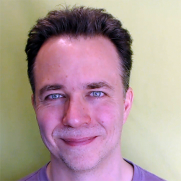 What inspired you to become an author? There’s no one thing that inspired me to become an author. I’ve been a creative person interested in storytelling my entire life. Some stories are best told through prose… for some, music is the appropriate medium. For others, it’s film, or sequential art (comicbooks). Most of my creative output has been through writing or music.
What inspired you to become an author? There’s no one thing that inspired me to become an author. I’ve been a creative person interested in storytelling my entire life. Some stories are best told through prose… for some, music is the appropriate medium. For others, it’s film, or sequential art (comicbooks). Most of my creative output has been through writing or music.
Do you write full time? If you’re asking I dedicate thirty five to forty hours a week to writing, no. However, A significant amount of my income flows from my creative endeavors, including writing, so it’s accurate to say that it’s one of my jobs. My company, MWS Media, helps independent creators, small businesses, non-profits, and the entertainment industry bring creative endeavors to fruition, to market, and to an audience. One of those independent creators happens to be… me!
How do you structure your day? I use a time and task management application called ToDoist (https://todoist.com) to prioritize my projects and keep track of deadlines. This helps me ensure that my personal projects get some of my time every day. As for when writing or writing-related tasks happen each day, that depends on what’s on the list and what the priorities are for that day.
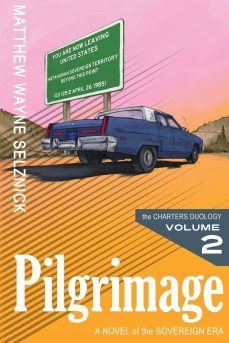 Do you have daily word targets? I don’t believe in word targets as a measure of writing productivity. Writing involves much, much more than adding words to a manuscript. Since I’m a strong believer in outlining and a well-defined story structure, much of my writing actually happens before I type the first word of the manuscript. So daily word count doesn’t mean much. Rather than worry about word count, when I’m in the first draft I try to complete a scene per writing session. A writing session might be an hour or it might be two, so long as at least one scene is finished. And there might be more than one session per day.
Do you have daily word targets? I don’t believe in word targets as a measure of writing productivity. Writing involves much, much more than adding words to a manuscript. Since I’m a strong believer in outlining and a well-defined story structure, much of my writing actually happens before I type the first word of the manuscript. So daily word count doesn’t mean much. Rather than worry about word count, when I’m in the first draft I try to complete a scene per writing session. A writing session might be an hour or it might be two, so long as at least one scene is finished. And there might be more than one session per day.
Before writing, do you plan your books to the last detail? No. I am an outliner. Storytelling in the Western tradition follows definable patterns (call them formulas if you like), and having a strong understanding of those roadmaps helps with planning, too. I use Scrivener (http://bit.ly/getscrivener) to map out the beats in a work, beginning with the tent-pole scenes and filling in the rest as needed — the number of scenes depends on the projected length of the work (about sixty five for a novel, for example). Once the outline is done, I know how many scenes are in the work as well as exactly what needs to happen, and why, in each of those scenes. But exactly *how* those targets are hit doesn’t happen until I start my first draft.
How do you get over the fear of a blank page? What’s that? Let me turn that around and offer why I don’t think anyone needs to suffer from writer’s block. It brings us back to what I’ve already touched on — that if you have a strong understanding of how capital-”S” Story works and the essential elements required, you won’t have a problem putting words on the page. Learn how stories work. Read critically. Watch television (especially hour long dramas and episodic dramas all the way across their season(or series)-long arcs) and films critically. Watch a month of soap operas — no kidding. If you want to be a successful writer, it’s not enough to write. You have to become a master of your toolkit. Just like a master mechanic begins their apprenticeship taking engines apart, you have to dissect stories. Once you understand how they work, it becomes much easier to take the ideas in your head and transform and enhance them (because an idea is not a story) into viable stories.
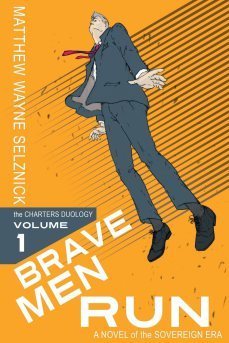 How do you target your audience effectively? First things first: I don’t think of them as an audience. I wrote about this: http://www.mattselznick.com/2013/03/07/stop-trying-to-build-an-audience/ You can also check out my social media policy (http://www.mattselznick.com/about-matthew-wayne-selznick/social-media-policy-matthew-wayne-selznick/), and, by way of what not to do, here’s a rant about some fairly common social media strategies all too often employed by indie authors: http://www.mattselznick.com/2011/11/30/social-networking-youre-doing-it-wrong-part-the-nth/
How do you target your audience effectively? First things first: I don’t think of them as an audience. I wrote about this: http://www.mattselznick.com/2013/03/07/stop-trying-to-build-an-audience/ You can also check out my social media policy (http://www.mattselznick.com/about-matthew-wayne-selznick/social-media-policy-matthew-wayne-selznick/), and, by way of what not to do, here’s a rant about some fairly common social media strategies all too often employed by indie authors: http://www.mattselznick.com/2011/11/30/social-networking-youre-doing-it-wrong-part-the-nth/
How much time do you spend promoting yourself in social media? I promote when there’s something to promote. I have a mailing list that I use when there’s something of value to communicate to that segment of the community; I have a Facebook page that’s specifically for people who want to be promoted to regarding my creative endeavors, and maybe 10% of my tweets are self-promotional. On LinkedIn, which is a bit of a different game because it’s specifically a professional networking site, I self promote when I have something of value to present to my professional contacts — not the same audience as the community into my creative endeavors, for the most part.
What’s been your most effective way of promoting yourself? When I released my first book in 2005, I also released in as a free podcast. At the time, that was the single most effective thing I did to build my community and raise awareness of my personal brand. I’m not sure it would be as effective today, as that particular space is much more crowded now. These days, my most effective promotional avenue is my mailing list.
How were you published? I have been traditionally published, but currently MWS Media publishes all of my work, save one anthology I contributed to and a Cordwainer Smith audiobook I narrated. You can find everything at http://www.mwsmedia.com, where you can purchase directly from me or through the usual online marketplaces. I don’t use Smashwords, as I prefer to create my own e-books and deal directly with Amazon, B&N, Kobo, and the like.
How do you keep yourself motivated? I have more ideas than time. I decide what to create next by evaluating the time, effort, and potential income of the ideas at hand, and prioritize accordingly. My motivation is to get to Done, and ship, because there are ideas in the queue and bills to be paid.
Do you think that Indie Authors are still looked down on by their traditionally published counterparts? I think a lot of indie authors like to think so. It seems to fuel some indie authors’ sense of righteous indignation… or maybe it helps obscure their insecurity; I’m not sure. But no, I think most traditionally published authors don’t care one way or another what indie authors are doing. Ditto editors and publishers.
Is it necessary for authors to have agents these days? As always, it depends on the author’s goals. Try getting your book optioned without an agent. Try selling foreign language rights without an agent. It can be done, but an agent can make it much easier. Plus, that’s their job — to sell your work in as many ways as possible. Why not have an agent? By the way, I don’t, but I wouldn’t mind having an agent under the right circumstances.
What’s your top tip for aspiring authors? Study stories, produce, ship, and be human.
Thank you for being part of this interview.


July 20, 2013
Paranormal Romance Kindle Event – This Weekend!

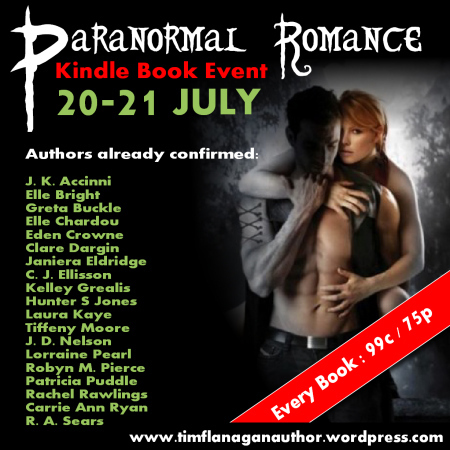 In case you hadn’t heard, this weekend I will be hosting the Paranormal Romance Kindle Event on my website, where 20 authors in this genre have agreed to drop the price of their ebooks to just 99c / 75p!
In case you hadn’t heard, this weekend I will be hosting the Paranormal Romance Kindle Event on my website, where 20 authors in this genre have agreed to drop the price of their ebooks to just 99c / 75p!
Come and have a look and see what is on offer. There is a variety of books available from some great authors, some of which you might not have tried before, but for 99c – what have you got to loose!!! Give a different author a try. Once the event has ended, the ebooks will revert back to their original price, so you only have a limited time to make the most of the event.
There is also a competition running alongside the event with 44 great prizes available, including Amazon Vouchers, signed paperbacks and loads of ebooks. It’s FREE to enter.


Film Friday – The Hobbit. The Desolation of Smaug
 As it is the end of the week, you probably don’t feel like reading anything, so how about a film? Well a teaser trailer!
As it is the end of the week, you probably don’t feel like reading anything, so how about a film? Well a teaser trailer!
I love the Lord of the Rings films, and enjoyed the Hobbit last year, so it goes without saying that I’m looking forward to the release of the second part in December. This is the teaser trailer for the second part of the Hobbit films, The Desolation of Smaug. Martin Freeman is great as Bilbo, a role he plays perfectly, much like his role as Dr Watson in Sherlock.
Enjoy the trailer and let me know what you think.




